The Algarve, with only 48 schools, is the region in the country with the fewest educational establishments in the national Eco-Schools network. However, according to councilwoman Ana Martins, from the Lagoa Council, "we still have a long time to increase that number".
The councilor responsible for Education was speaking yesterday morning, at the opening of the National Eco-Schools Seminar 2019, which started this Friday and ends tomorrow, January 20, at the Centro de Congressos do Arade, in Parchal (Lagoa).
Ana Martins highlighted that «Lagoa, Cidade Educadora, already has more than 50% of its public and private schools in the eco-schools program» and that it is «the result of the work that we are here today».
In fact, one of the teaching establishments in Lagos, the Nobel International School, received an Excellence Award yesterday, within the scope of this national project.
José Archer, president of the Blue Flag Association (ABAE), which promotes this national project of Eco-Schools, underlined that, since it started in Portugal, the program has already reached «various generations of students, who today are active and more aware citizens». He also praised “the commitment, work and dedication that the teachers have been putting at the service of the project, since its inception”.
Margarida Gomes, national coordinator of the Eco-Schools project, recalled that «Portugal is almost a pioneer, since it has entered its second year of existence» of this international programme.
In fact, the Indian expert Pramod Sharma, Senior Director of Education of the Foundation for Environmental Education, the entity that promotes Eco-Schools worldwide, stressed, at the opening of the seminar, that «Portugal is one of the leading countries in the program in global terms».
Thus, in the 2018/2019 school year, there are 1752 schools registered across the country, involving 741.241 students and 2329 coordinating teachers, in 241 municipalities. This year, there are even 23 higher education establishments involved.
Worldwide, there are Eco-schools in 77 countries, involving more than 51 educational establishments.
These are numbers that, according to Margarida Gomes, clearly reflect the strength of this “fundamental citizenship project”, in Portugal and in the world.
In his speech, Pramod Sharma also stressed that, nowadays, with the problems facing the planet, "sustainability is no longer a choice, it is an obligation".
Sustainability, he added, "is a very important aspect that has to be part of the education system", to alert young students "to the problems we are facing now and in the future".
Pramod Sharma also valued the role of the teacher “as a facilitator and guide for the student, more than just a transmitter of knowledge”.
The Indian expert, special guest of this seminar, also spoke of the "pressing problems" at the environmental level, concluding that "in the context of sustainability, children are not the citizens of the future, they are already the citizens of the present, of now".
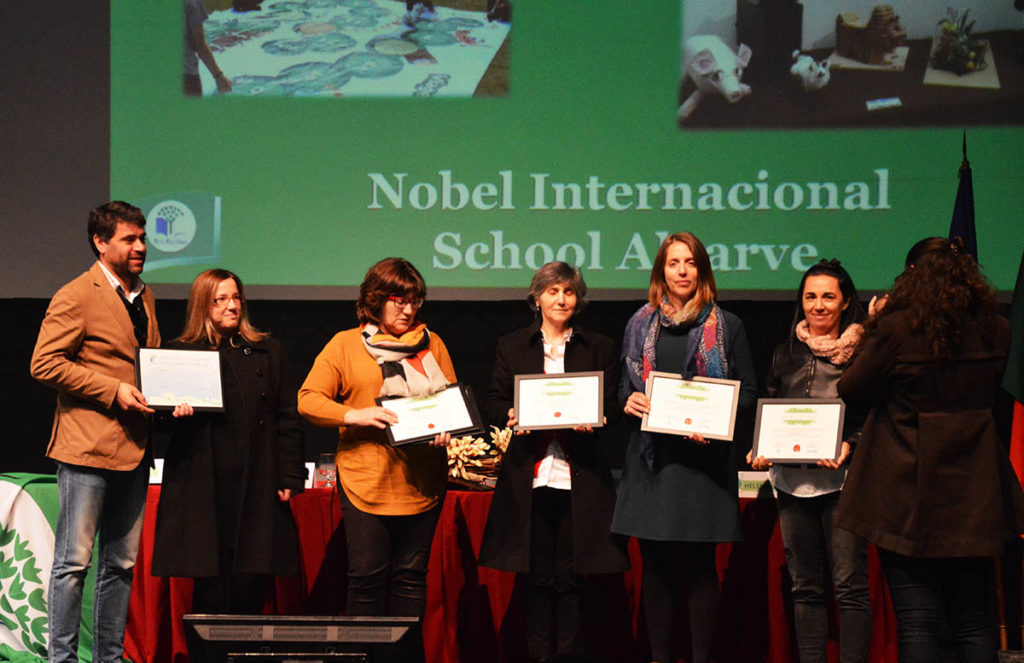
At the end of the opening session, the 2018 Quality Diplomas were delivered to schools across the country. Thus, in Alentejo, the Sebastião da Gama Basic School (Estremoz), the Nossa Senhora da Graça College (Odemira), the Pias Basic School (Serpa), the Serpa Professional Rural Development School and the EB1+JI School were awarded Friar António das Chagas (Vidigueira).
From the Algarve, in this category, only EBI Prof. Dr. Aníbal Cavaco Silva, from Boliqueime (Loulé).
As for the Diplomas of Excellence, in the south of the country, the winners were the Conde de Vilalva Basic School (Évora) and the Nobel International School (Lagoa).
The “Rota Pela Floresta 2018” awards were also given to the municipalities of Loulé, Amadora and Mealhada. There were also Honorable Mentions for Aljustrel, Viseu, Braga, Leiria, Machico, Águeda and Soure.
Eco-Schools is an international program recognized by UNESCO as the largest sustainability education network in the world, and is currently a “tool” for the implementation of the Sustainable Development Goals (Agenda 2030), emphasizing its vocation of education for responsible citizenship.
Photos: Elisabete Rodrigues | Sul Informação
PROGRAM
Saturday, January 19 (morning)
School EB 2,3 Rio Arade de Parchal
9:00 am – Workshops
Session A | 9:00 am to 10:00 am – Session B | 10:15-11:15
- Virtual Visits to Water Factories | Sara Duarte. Waters of Portugal
- Aquaquiz | Theo Fernandes | Waters of Portugal
- Marine Trash | Catarina Gonçalves. ABAE
- Responsible consumption of fish | Rita Sa. WWF
- Sea | Élio Vicente. Zoomarine *
- Biodiversity and conservation | James Carrilho. Lisbon Zoo.*
- Birds Song | Carlos Cruz. ICNF
- Forest in the vegetable garden and in the kitchen | Fernanda Botelho
- Ovens and Solar Kitchen | Celestine Redhead. UAlg
- Collage Technique | João Taborda and Sílvia Oliveira. UHU
11:30 am – 13:30 pm – Eco-Schools Forums
Working Groups with teachers + 1 working group with technicians from municipalities and other participants.
- Forum 1 – Teaching Degree: Kindergarten | Coordinator: Tânia Filipa da Silva
- Forum 2 – Teaching Degree: 1st Cycle | Coordinator:*
- Forum 3 – Teaching Degree: 1st Cycle | Coordinator: Carlos Pêpe *
- Forum 4 – Teaching Degree: 1st Cycle | Coordinators: Patrícia Romeiro and Renata Gonçalves
- Forum 5 – Teaching Degree: 2nd and 3rd Cycle | Coordinator: Artur Vieira
- Forum 6 – Teaching Degree: 2nd and 3rd Cycle | Coordinator: Eunice Pinto
- Forum 7 – Teaching Degree: 2nd and 3rd Cycle | Coordinator: Odete Melo
- Forum 8 - Teaching Degree: 2nd and 3rd Cycle | Coordinator: Vítor Martins
- Forum 9 – Teaching Degree: Secondary | Coordinator: *
- Forum 10 – Degree of Education: Higher | Coordinators: Giovanni Giorgetti and Pedro Gonçalves
- Municipalities Forum | Coordinators: Margarida Gomes and Tânia Vicente
13:30 pm – 14:30 pm | Lunch – School EB 2,3 Rio Arade de Parchal
14:30 pm – 15:00 pm | Travel to the Arade Congress Center
Saturday, January 19 (afternoon)
Arade Congress Center
15.00:16 pm – 00:XNUMX pm | Panel VIII – Eco-Schools: challenges and opportunities
Moderator: Margarida Gomes, ABAE
- Eco-Schools, Hand Print & SDG | Pramod Kumar Sharma. Foundation for Environmental Education
- Research on Eco-Schools | Leonor Silver Castle. ICS
- Curriculum Flexibility and Eco-Schools | Helena Barracosa. Algarve Training Center
16.00 – 16:45 | Panel IX – Eco-Schools Network | Good habits
Moderator: Margarida Gomes. ABAE
- School EB 2, 3 Jacinto Correia, Lagoa | Fernando Manuel Pessoa
- School EB 2, 3 André Soares. Braga | Victor Martins
- GAfeBikeLab Project, Secondary School of Gafanha da Nazaré. Ilhavo | Teresa Pacheco
16:45 pm – 17:00 pm – Pause | Visit to the Eco-Show
17.15:18 pm – 00:XNUMX pm | Panel X - Projects for Eco-Schools
- Depositrão Generation and Verdão Generation | Philippa Moita. ERP / Novo Verde
- UHU Challenges | Silvia Oliveira. UHU
- Other projects on Circular Economy, Sea, Forest, Food, Vegetable Gardens … | Margaret Gomes. ABAE
- Raffle Global Action Days
- Delivery of prizes: best photography Seminar 2018
18:00 – 18:30 | Presentation of the Visit to Lagoa | Paulo Gomes*. CM from Lagoa.
18:30 pm | Conclusions and Closing
Sunday January 20th
9:00 am – 13:00 pm – Visit to Lagoa accompanied by technicians from the City Council.
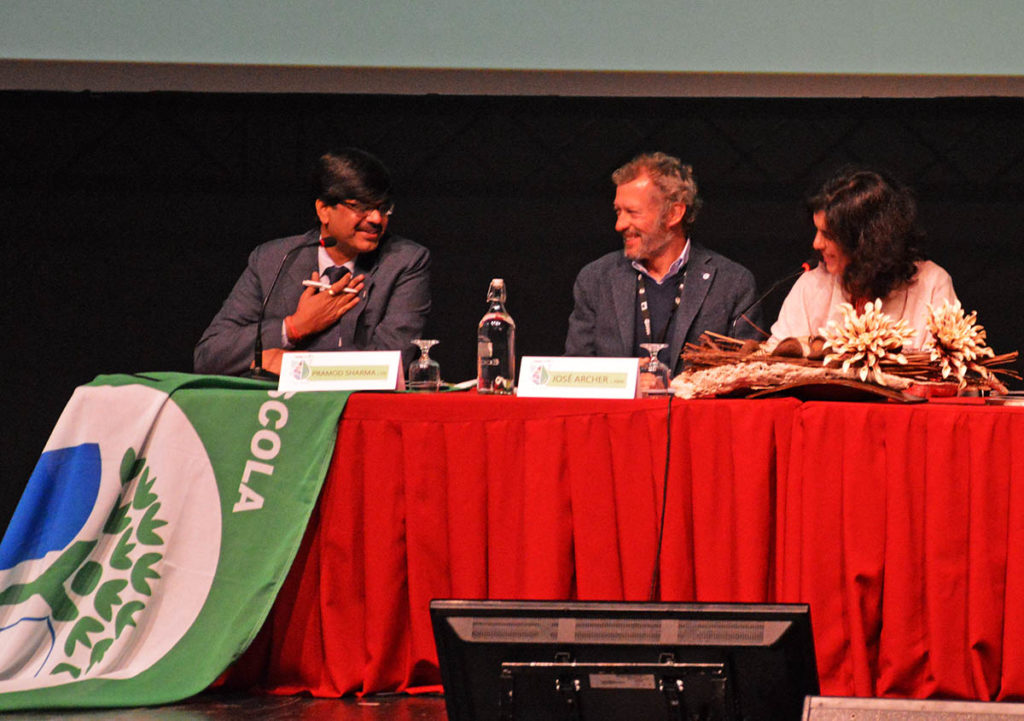
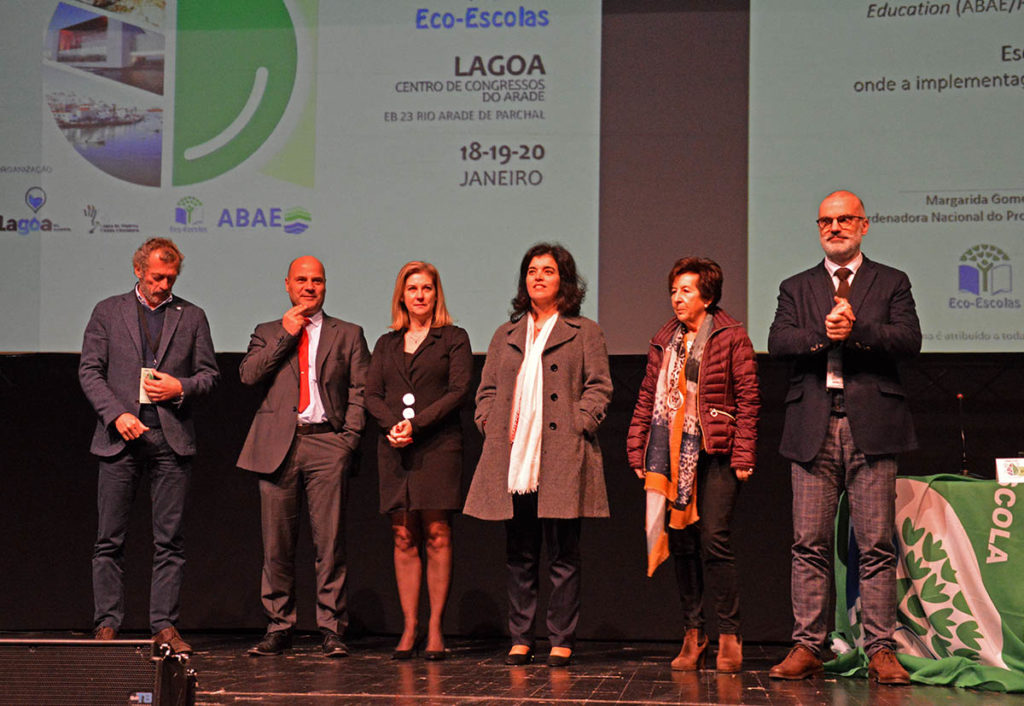
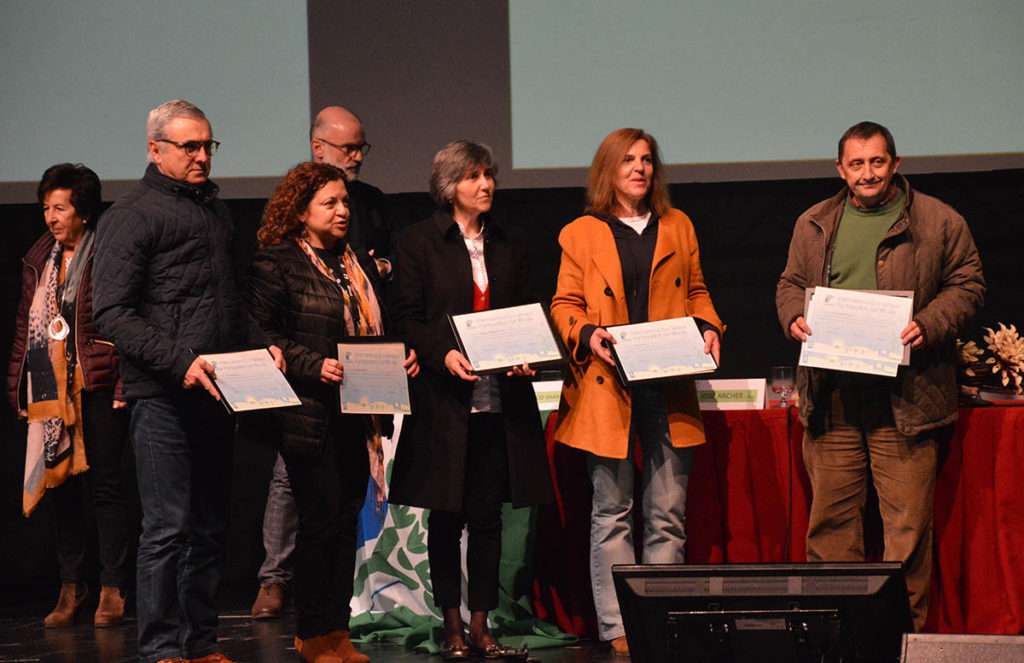
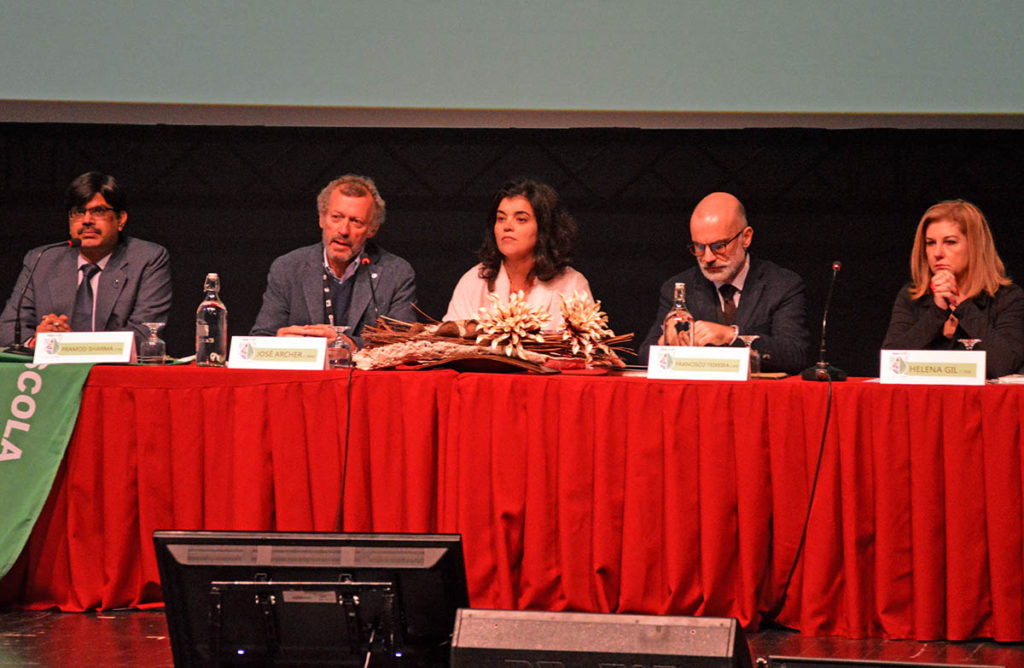
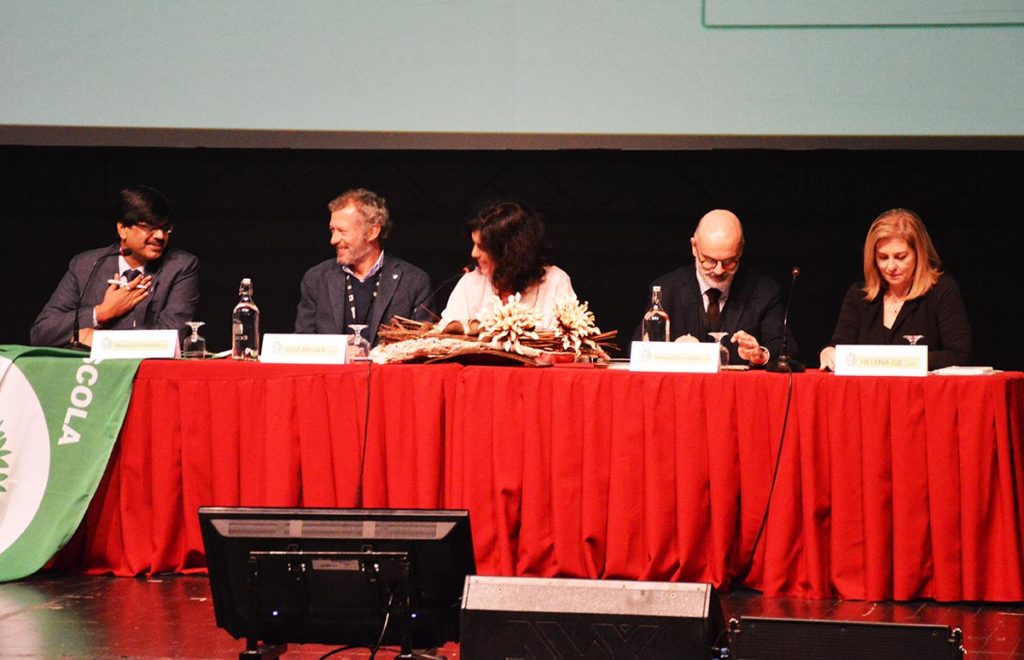
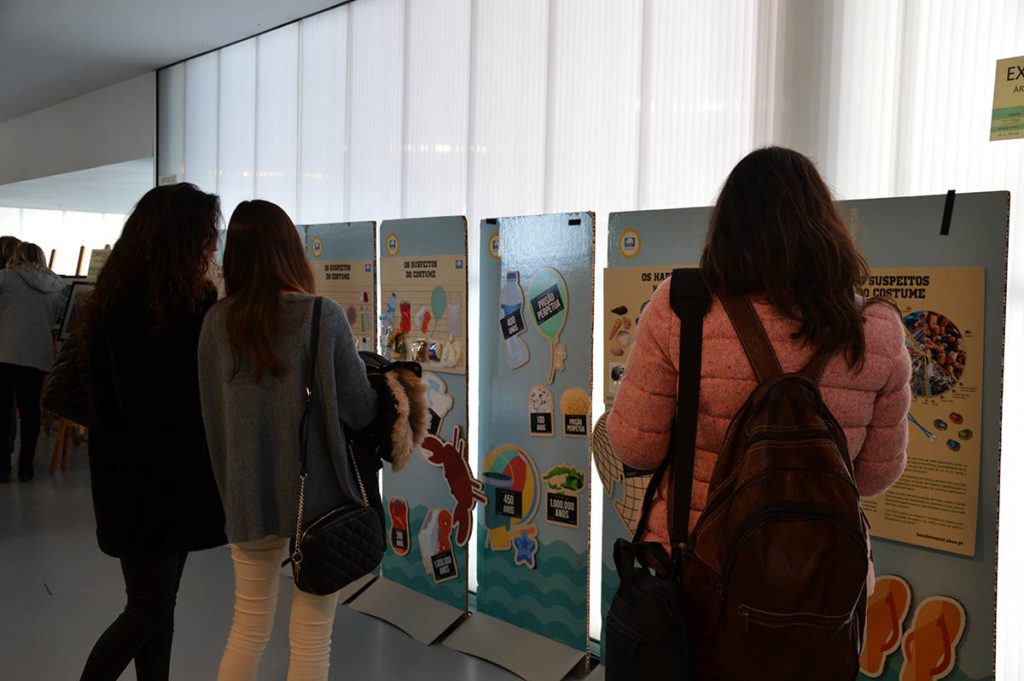
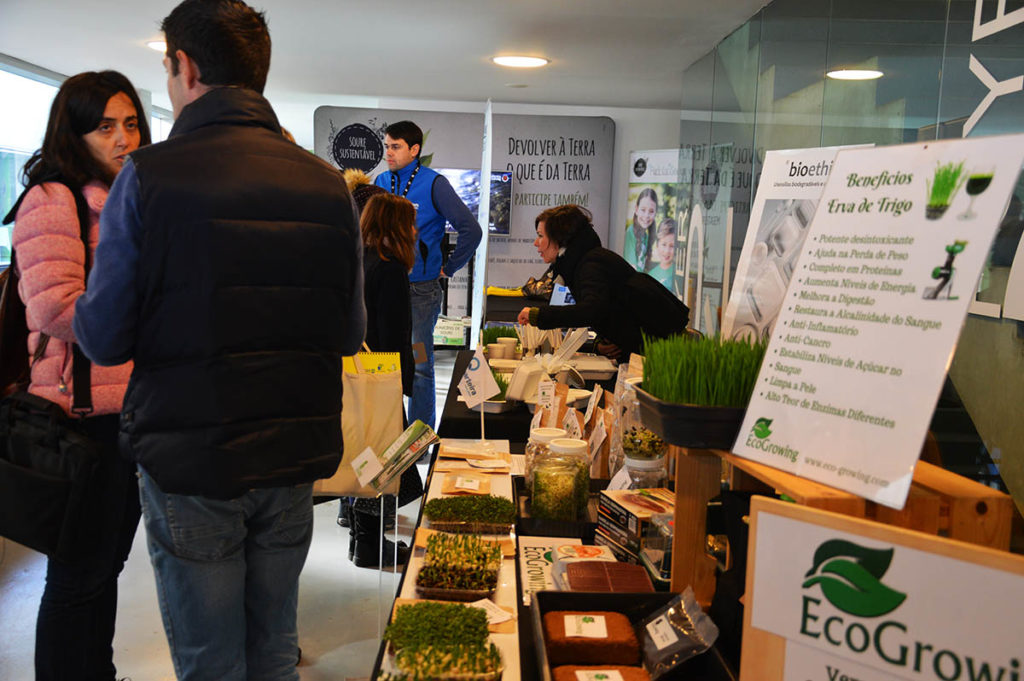
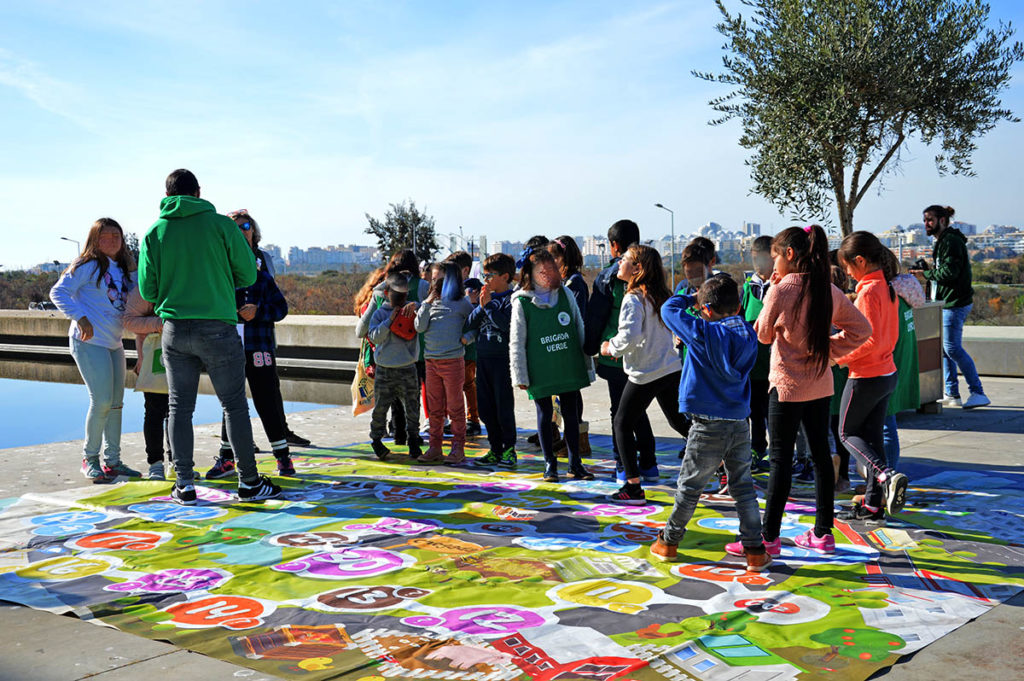
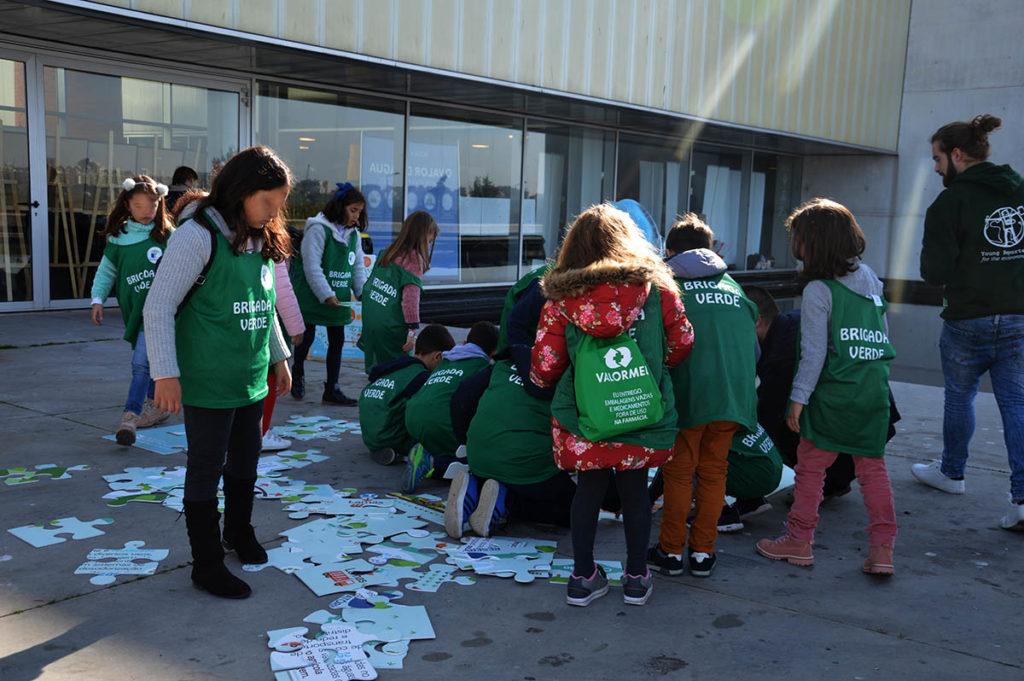


















Comments